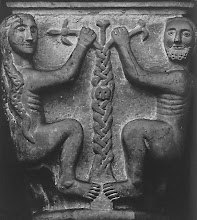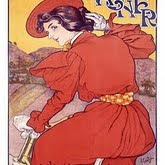You're a poetWe no longer live in an age of public poetry. And our great public poets of the past are hard to hear now, when we hear them only murmured beneath our breath, into our own inner ears only. So much of poetry now is for private meditation, individual epiphany – a silent interchange between a reader and a written page from a writer with a written page. Even at poetry readings, I feel myself drawn inward, listening to the poet read their words from where they stand far away within their innermost self.
And don't know it,
But your feet show it -
They're long fellows!
So it was strange recently to recite a public poem by Longfellow at my grandfather’s funeral and to feel the audience following – filling up the words, as if I were a voice for more than myself, their accompaniment filling the hall as much as my voice did.
I must confess I had never, even as a child, really considered “The Day is Done” true poetry. I’d memorized it at my schoolteacher grandpa’s prompting – to please him. But “Paul Revere’s Ride” (also by Longfellow, which we memorized together afterward) was much more dramatic: “Listen my children and you shall hear / Of the midnight ride of Paul Revere . . .”; and even had occasional chanted passages that gave me that shudder of weirdness that was for me the marker of a true poem:
A phantom ship with each mast and sparBut even with such passages I was sure within myself – despite older people’s opinion to the contrary – that Longfellow just was not a poet in the same way that Emily Dickinson was – whose poem after poem shook me and made me feel strange, as if suddenly awoken.
Across the moon like a prison bar
And a huge black hulk that was magnified
By its own reflection in the tide
And it’s true Longfellow is not a poet in the same way. But I wonder now if I haven’t (if we haven’t) been too hasty in writing Longfellow off . Or is it just that I feel such affection for his poem now – it having kept me company through the death of my grandfather and what comes after. The words and rhythms I had thought manufactured and dry seemed in my sorrow to be reassuringly restrained and orderly. The rhyming lines rolling everlastingly on comforted me – that the rhythms around me – sun and wind and rain – would roll on as irresistibly. “The day is done” became for me not a clichéd phrase, but a measured acknowledgement of death. The lights of the village, the rain and the mist and the quiet, non-dramatizing sadness (“that is not akin to pain,/ And resembles sorrow only as the mist resembles rain”) matched exactly with my inner landscape – and apparently with the landscape within many of the congregants who attended the funeral. I saw them nodding, tears welling up in their eyes. Because these old-fashioned words were familiar from childhood? Because we all were a little weary of “life’s endless toil and endeavor/ And tonight I long for rest”? What have we lost by laying aside a culture where public recitation of good words, capable of holding the burden of many hearts, happens only at old schoolteachers' funerals? Where we cannot (do not) ask those who live alongside us to
. . . read from the treasured volumeWhere we no longer know the chants of healing - those songs with “the power to quiet/ The restless pulse of care,” remembered words that “come like the benediction / That follows after prayer.”
The poem of thy choice,
And lend to the rhyme of the poet
The beauty of thy voice.
The Day is Done
by Henry Wadsworth Longfellow
The day is done and the darkness
Falls from the wings of night
As a feather is wafted downward
From an eagle in his flight.
I see the lights of the village
Gleam through the rain and the mist,
And a feeling of sorrow comes o'er me
That my soul cannot resist.
A feeling of sadness and longing
That is not akin to pain,
And resembles sorrow only
As the mist resembles the rain.
Come, read to me some poem,
Some simple, heartfelt lay
That will soothe this restless feeling
And banish the thoughts of day.
Not from the grand old masters,
Not from the bards sublime
Whose distant footsteps echo
Along the corridors of time.
For, like strains of martial music,
Their mighty thoughts suggest
Life's endless toil and endeavor
And tonight I long for rest.
Read from some humbler poet
Whose song gushed from his heart
Like rain from the clouds of summer
Or tears from the eyelids start,
Who, through long days of labor
And nights devoid of ease,
Still heard in his soul the music
Of wonderful melodies.
Such songs have the power to quiet
The restless pulse of care
And come like a benediction
That follows after prayer.
Then read from the treasured volume
The poem of thy choice,
And lend to the rhyme of the poet
The beauty of thy voice.
And the night will be filled with music,
And the cares that infest the day
Will fold their tents like the Arabs
And as silently steal away.




No comments:
Post a Comment